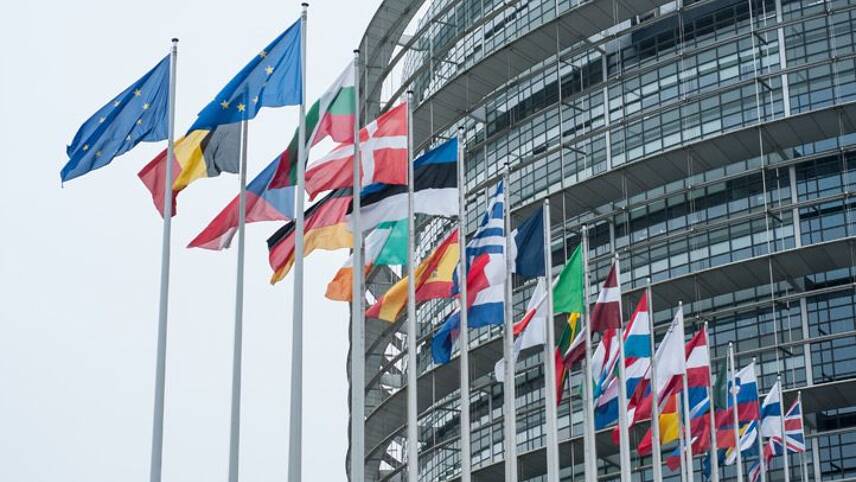Register for free and continue reading
Join our growing army of changemakers and get unlimited access to our premium content

CLG Europe members and affiliate members including Unilever
Coordinated by Pascal Canfin, Chair of the Environment Committee at the European Parliament, the Green Recovery alliance consist of 180 political decision-makers from 11 countries, 79 cross-party MEPs from 17 Member States, 37 chief executives, 28 business associations representing 10 different sectors, trade union confederation representing members from 90 national trade union organisations and 10 trade union federations, seven NGOs and six think tanks.
The alliance commits signatories to work collaboratively to create and deliver bespoke post-crisis green investment packages to help the pan-European economy market recover, while also mobilising plans that place climate change mitigation and biodiversity at the heart of any stimulus plans.
The strategy will build on previous initiatives such as the Commission’s 2018 Action Plan on Financing Sustainable Growth and the reports of the Technical Expert Group on Sustainable Finance.
CLG Europe members and affiliate members including Unilever, Iberdrola, INGKA Group, ENEL, Royal DSM, Signify Europe are signatories to the alliance.
“A Green Recovery is vital to ensuring the flaws in our economic systems exposed by the present crisis can be addressed at a fundamental level and that we do not fall behind on delivering action on climate and environment,” CLG Europe’s director, Eliot Whittington, said.
“We know from the businesses we work with that climate action is largely well aligned with building new industries, delivering better health outcomes, and more pleasant places to live. These approaches involve creating new jobs and building a more resilient economy. As we rebuild, we must apply these approaches and look to construct a stronger economy that works for its people and does not lead us inexorably into the next crisis.”
European rebuild
In Europe, 865 918 cases of coronavirus have been recorded, although the actual figure is expected to be much higher due to a lack of testing. Spain, Italy, Germany, France and the UK are the countries with the highest recorded cases in the EU.
The coronavirus pandemic has led to unprecedented restrictions on travel, work and industry production, with the economy experiencing a crash on par with the 2008 financial crisis.
The restrictions are likely to provide short-term benefits in efforts to combat the climate crisis. Experts had expected global carbon emissions from fossil fuels to rise in 2020, but new adjustments suggest that global emissions may decline by 5% to its lowest levels in a decade.
Last week, the EU executive launched a public consultation on its “Renewed Sustainable Finance Strategy”, part of a €1trn package to make the European economy greener by 2030.
It comes as a study from Carbon Tracker warned that European nations are at risk of being burdened with uneconomic, long-term plans to stimulate their economies in response to the coronavirus outbreak by focusing on new coal capacity.
In fact, many experts are expecting “retaliatory emissions” to occur when nations are allowed to ramp up production once lockdown measures are relaxed. It is for this reason that the Green Recovery plan and the EU’s wider Green New Deal movement could be crucial to ensuring that the economy is recovered and restructured in a way that doesn’t lead to an increase in emissions.
At a European level, the Green New Deal has recently been enshrined and includes a 50-55% emissions reduction target for 2030; a climate law to reach net-zero emissions by 2050; a transition fund worth €100bn and a series of new sector policies to ensure all industries are able to decarbonise. The transition fund is largely what sets a Green Deal apart from a climate target, as it also aims to drive fair and just societal prosperity.
However, the bloc-wide deal is facing delays. The European Commission is having to re-order its priorities in the face of the coronavirus crisis, with “non-essential” initiatives like the biodiversity strategy and the farm-to-fork strategy likely to be delayed by several weeks. More broadly, both the COP26 conference in the UK, and the COP biodiversity talks in China have been delayed due to the virus, with many green groups concerned that climate change and biodiversity could slip down the political agenda as a result.
In a recent feature, edie outlined ‘Why the Green New Deal is the perfect response for the post-Covid-19 economy’, featuring comments from renowned climate authors and academic experts.
Matt Mace


Please login or Register to leave a comment.